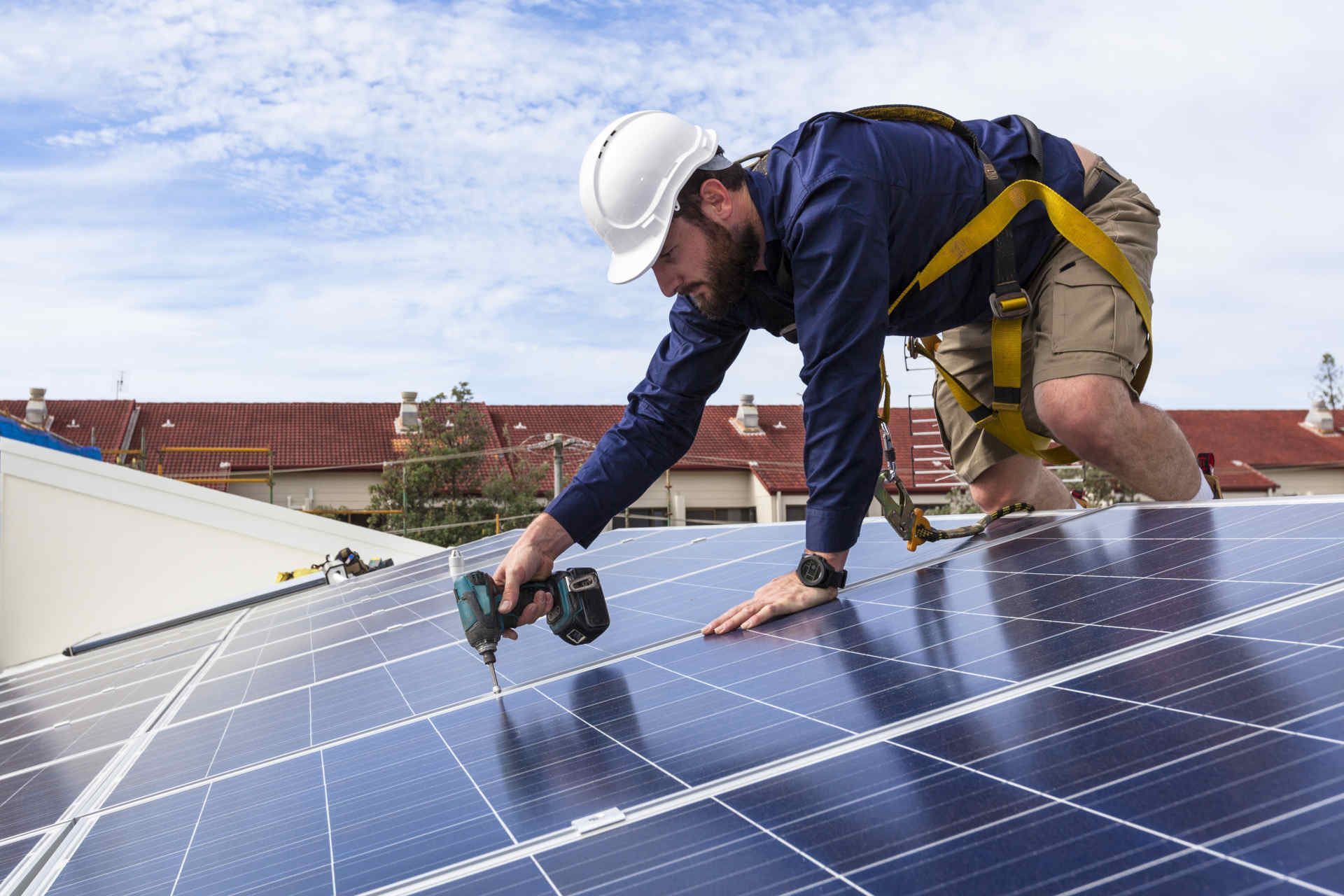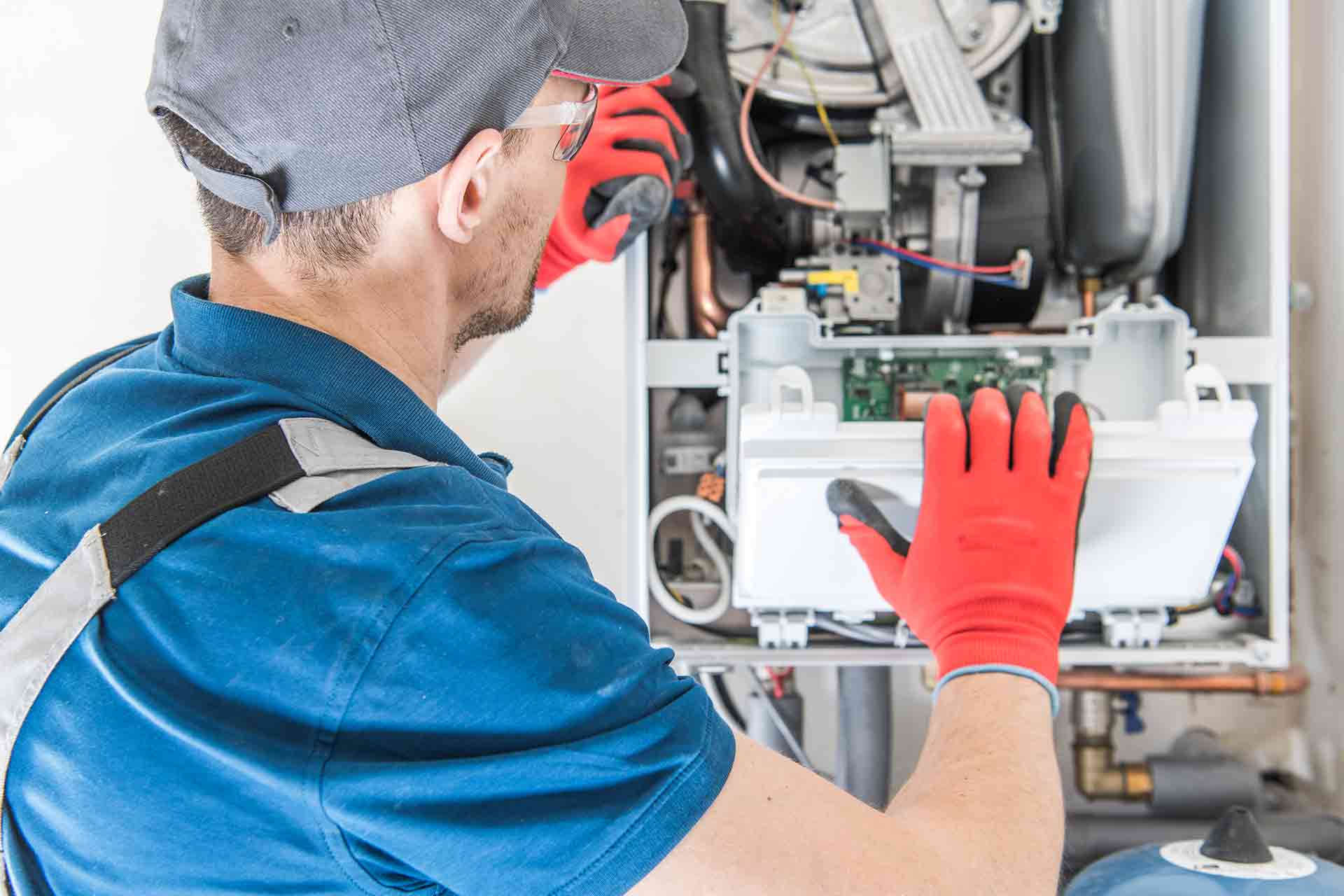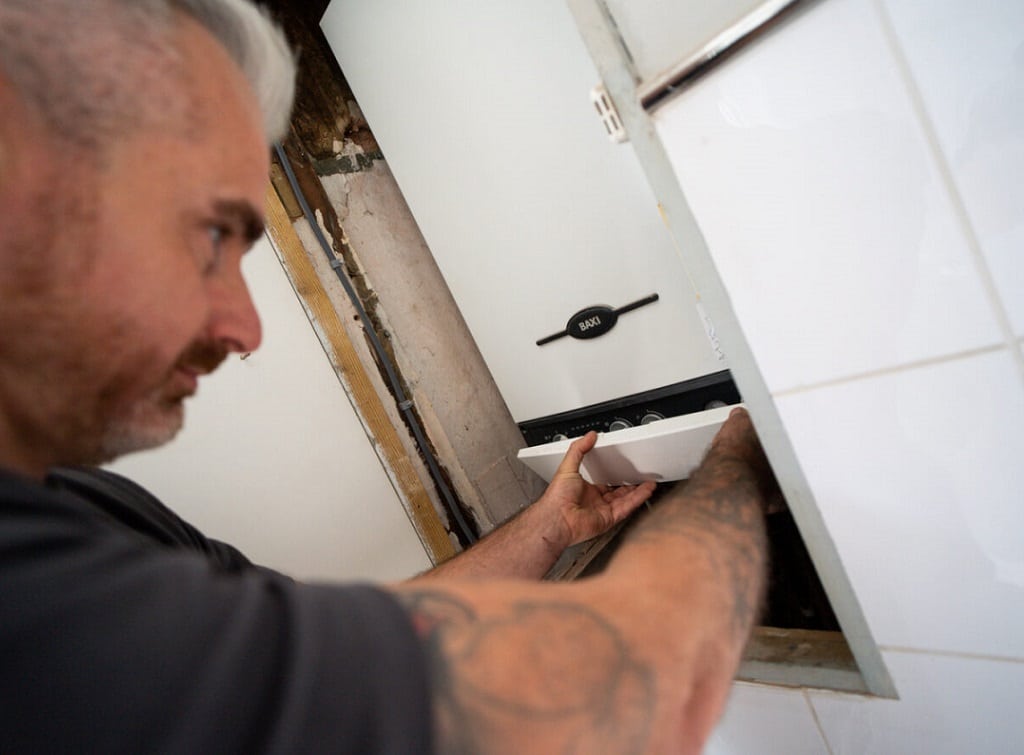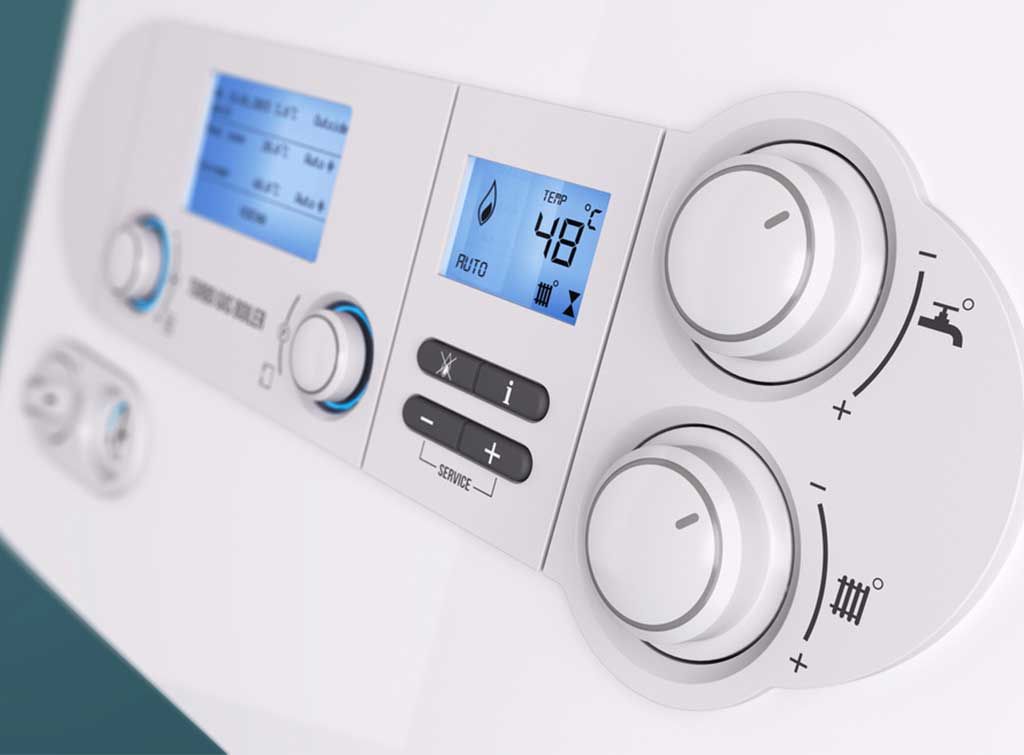Blog>Expert Advice>Electric vs gas boilers – which is right for your home?
Last updated: 6 December 2024
Electric vs gas boilers – which is right for your home?
Your boiler is one of the most important pieces of kit in your home. So, if the time has come for a replacement, you’ll want the full lowdown on electric vs gas boilers. Here’s all you need to know.
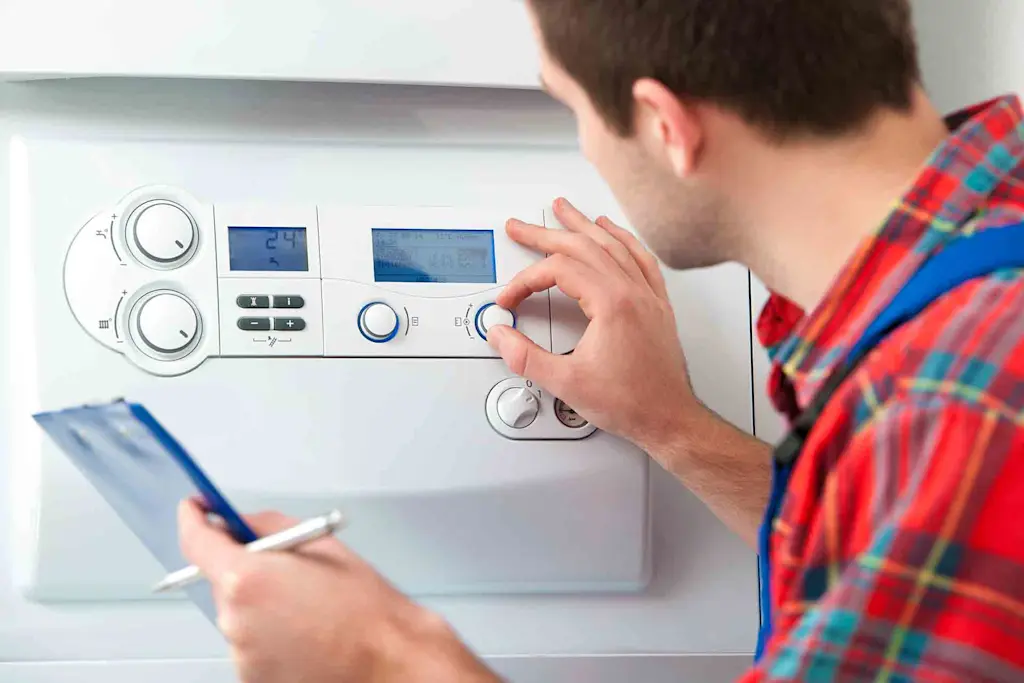
Your boiler is responsible for keeping your home warm and toasty, and sending hot water to your taps and showers. So, choosing the right one for your needs is crucial.
Don’t worry, you’re in the right place.
Here, we’ll break down the key differences between electric vs gas boilers and help you make the right decision for your home.
What is an electric boiler?
Instead of burning fossil fuels, an electric boiler works using electricity.
They’re usually found in smaller homes that have lower heating and hot water demands, or that aren’t connected to the main gas supply.
Currently, just 8% of households in the UK use electric central heating (according to the 2021 census).
How electric boilers work
Electric boilers turn electricity into heat instead of burning fuel.
They heat water by passing it over a hot element, before sending hot water to your radiators, taps and showers.
In this way, although they work rather differently from gas boilers, your heating and hot water will feel very much the same.
Pros and cons of electric boilers
Although electric boilers aren’t as popular as gas boilers, they have their benefits.
Here are the main pros and cons to bear in mind.
Pros
Won’t require a gas supply
Quieter operation
Fewer moving parts (making maintenance easier)
More eco-friendly
Compatible with solar panels
No risk of leaks
Cons
Higher running costs
Much of the UK’s electricity is generated by fossil fuels
May struggle to meet the demands of larger properties
Power cuts can affect your access to heating and hot water
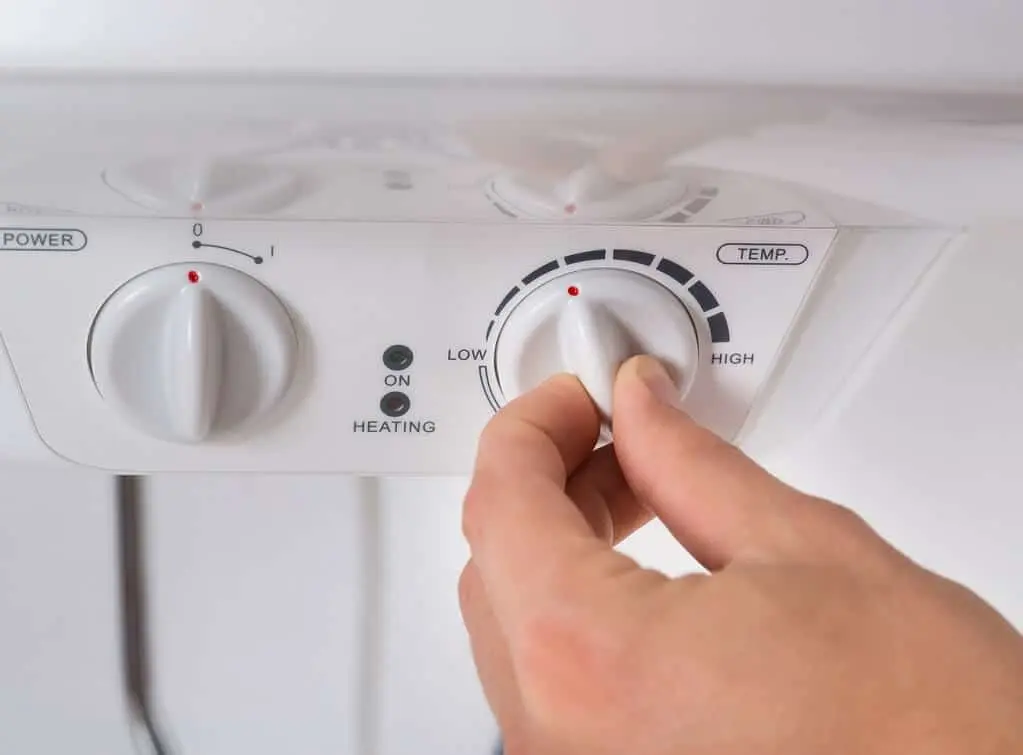
What is a gas boiler?
A gas boiler uses the fuel natural gas to generate central heating and hot water.
Gas boilers are currently the most common method used to heat homes in the UK.
In fact, according to the 2021 census, 73% of households use mains gas as their only central heating source.
How gas boilers work
Gas boilers burn natural gas to ignite a series of flames.
As water passes by these flames in pipes, it heats up – just like you might heat water in a pan when you’re cooking.
In this way, gas boilers are able to send warm water to your radiators or underfloor heating, as well as to your taps or showers.
Modern gas boilers also need a small supply of electricity to ignite the boiler and keep it running. However, this is only a small amount compared to the electricity used by an electric boiler.
Pros and cons of gas boilers
Gas boilers can also be an effective way to heat a home – in fact, they’re the method of choice for the majority of the population in the UK!
However, they also have their downsides. For example, although the deadline has changed, the UK government is putting limits on gas boilers being installed in new homes.
Here’s the lowdown of other points to consider.
Pros
Relatively low upfront costs
Low running costs
Lots of choice on the market
Cons
Bad for the environment
Soon to be phased out
Less efficient
Risk of leaks
Requires more maintenance
Can’t take advantage of grid flexibility
See the tradespeople we've checked and recommend for your job
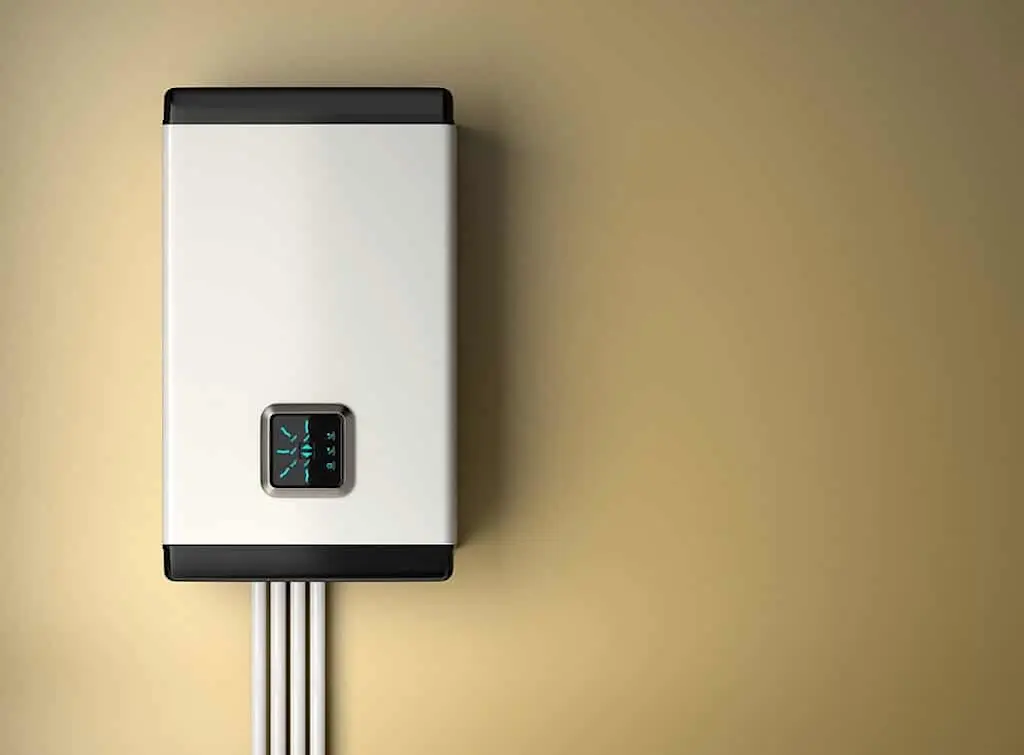
Gas vs electric boilers: key differences
Still weighing up whether to get a gas or electric boiler?
Here’s how they compare in key areas.
Efficiency
Electric boilers are much more efficient than gas boilers.
This is because they don’t burn fossil fuels and emit fumes – so, none of the energy used to power your boiler will be lost.
That said, all gas boilers nowadays have to be A-rated, so they’re not exactly inefficient. In fact, they have to reach at least 90% efficiency.
Higher efficiency doesn’t necessarily translate to lower running costs.
Running costs
Despite being highly efficient, currently electric boilers cost more to run than gas boilers.
This is because the price of electricity is higher than the cost of gas.
The cost of energy is changing all the time. But recently, the unit cost of gas heating was 6.04p/kWh, compared to 24.5p/kWh for electricity.
You can read more about gas vs electric heat cost in our dedicated guide.
Having said that, it’s worth noting that electric boilers can also be used with renewable energy sources, like solar panels – meaning you could generate the energy your electric boiler uses for free.
Likewise, the electrification of heat with an electric boiler means you could take advantage of grid flexibility – using electricity at times of the day when it’s cheaper.
Maintenance costs
Although electric boilers are more expensive to run, they tend to come with lower maintenance costs.
A gas boiler service typically costs £80–£120,compared to£70–£110 for an electric combi boiler.
Electric boilers have fewer moving parts
Gas boilers are more susceptible to wear and tear
In particular, gas boiler manufacturers recommend having your boiler serviced at least every 12 months. This is often a condition of keeping your warranty valid – although regularly servicing an electric boiler is sensible too.
Head over to our boiler service cost guide to learn more.
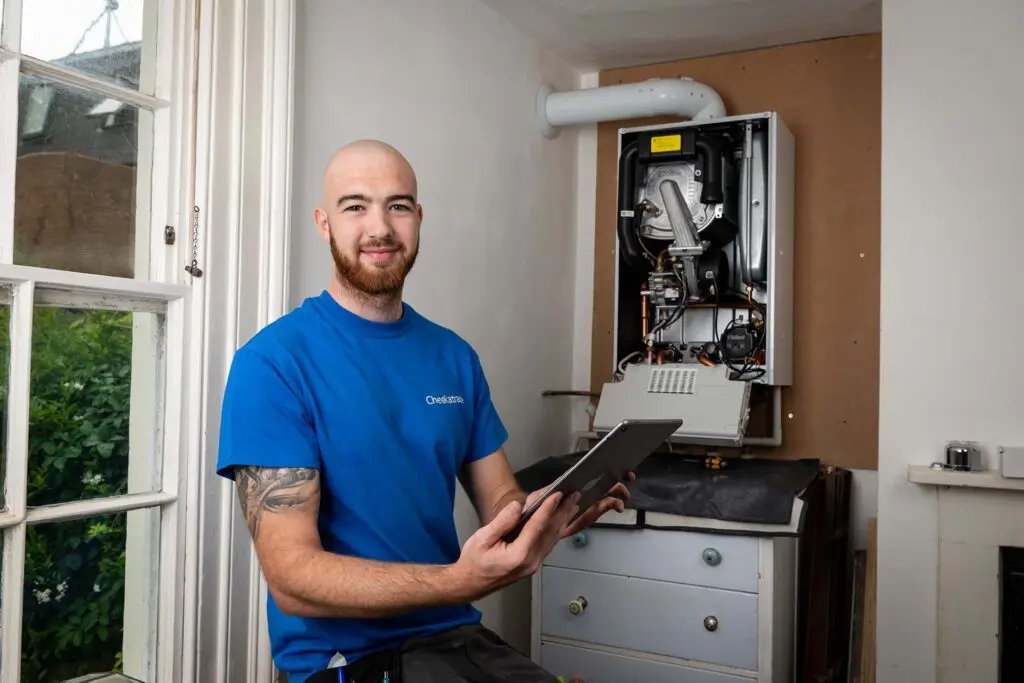
Upfront cost
The average cost of a new electric boiler is similar to that of a new gas boiler.
You’re looking at around £3,000 for supply and installation.
However, there’s a bigger choice of gas boilers, so there’s also a bigger price range – which means more options if you’re on a budget.
As a rough guide, a new gas boiler can cost anywhere between £650 - £3,000 (without installation).
Meanwhile, new electric boiler prices range between £1,200 - £1,800.
Our new boiler cost guide goes into more detail.
Installation
Installing an electric boiler is arguably slightly easier than installing a gas boiler.
This is because they won’t need to be connected to the main gas supply. And they won’t need a condensate pipe or flue either.
If you’re replacing your boiler like-for-like, this will almost always be easier than replacing your existing boiler with a different type.
The most important thing to bear in mind is that you’ll need a Gas Safe registered engineer to install a new gas boiler.
Performance
Despite their efficiency, electric boilers can struggle to cope with larger heating and hot water demands.
In this way, while they can be a great option for smaller homes and flats, they’re often less suitable for larger properties (although there are exceptions).
There is increasingly a wide range of maximum output ratings or boiler power for both types. That means there’ll be a boiler model to meet even very large central heating and hot water demands.
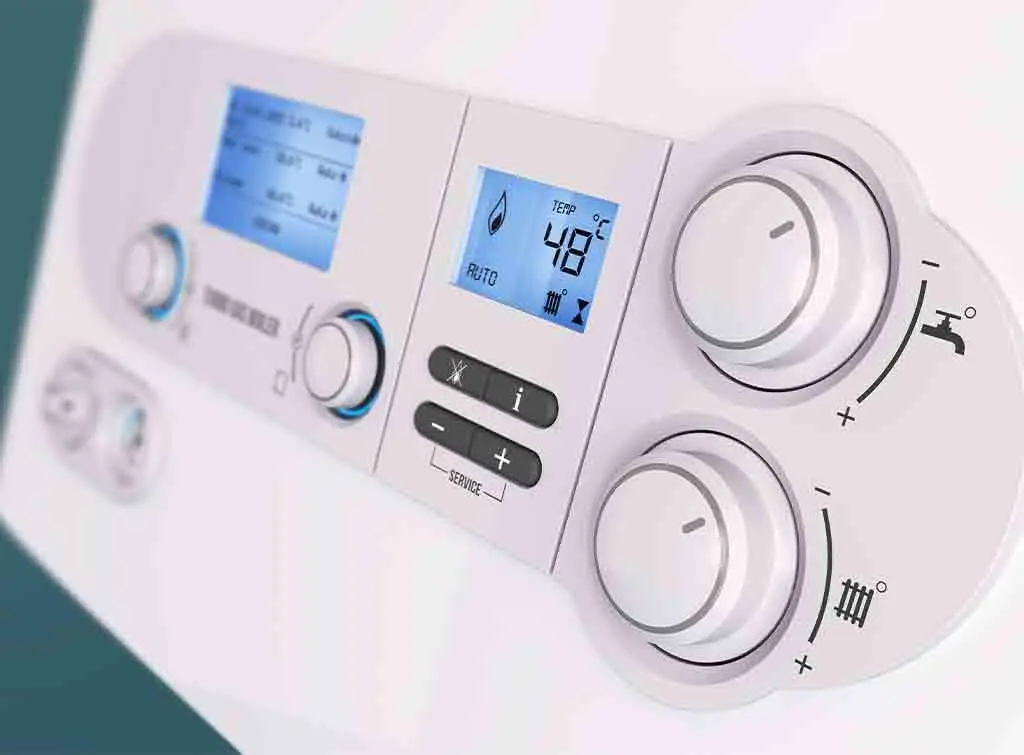
Sustainability
According to Energy UK, 17% of the UK’s total emissions output is represented by home heating – showing just how damaging gas boilers can be to the environment.
Electric boilers are much more eco-friendly. After all, they don’t burn fossil fuels or release emissions. And they’re more efficient.
It’s true that much of the UK’s electricity is still generated by fossil fuels – so it’s not a completely carbon-free option.
However, as time goes on, the proportion of renewable energy supplied to the national grid is increasing.
If you want to reduce your carbon footprint still further, you’ve also got the option of teaming your electric boiler with a renewable energy source – such as solar panels.
Lifespan
Electric boilers typically last for longer than gas boilers.
An electric boiler lasts roughly 15-25 years
A gas boiler lasts roughly 10-15 years
This difference is largely because electric boilers have fewer moving parts and are therefore less prone to wear and tear.
Safety
All boilers are made to very high safety standards.
But it’s worth noting that electric boilers don’t directly burn fossil fuels – which means you won’t need to worry about gas leaks.
In contrast, if a gas boiler leaks, there’s a chance of carbon monoxide poisoning.
Of course, this risk can be mitigated against with a carbon monoxide alarm and regular boiler servicing – but an electric boiler would likely still be considered safer.
Accessibility
Last but not least, it’s important to consider what options are actually available to you.
A gas boiler is an easy choice to make if your home is connected to mains gas.
However, if not, your options are more limited. Most homeowners will find themselves choosing between LPG, oil and electric boilers (although renewable options like biomass boilers and heat pumps are growing in popularity).
While LPG and oil will require you to store your fuel in a tank and arrange fuel deliveries, an electric boiler is a straightforward and hassle-free option that requires less space – and less brain power too!
See the tradespeople we've checked and recommend for your job
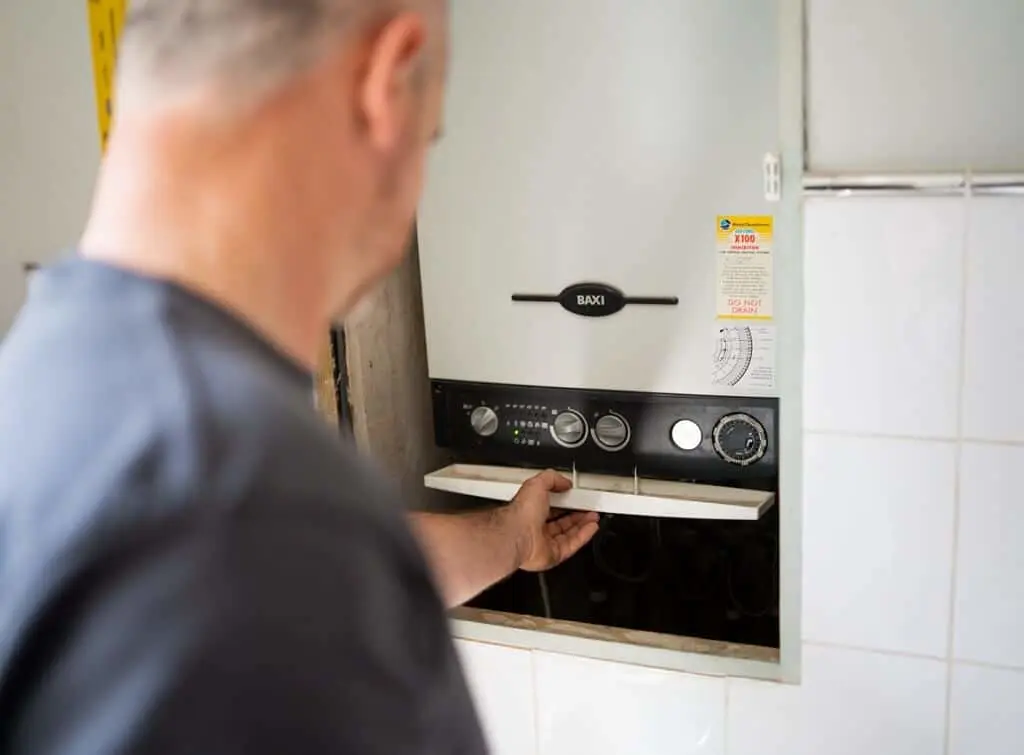
Which boiler is right for your home?
It’s impossible to say for sure which boiler is right for your home. Rather, it’ll all depend on your living situation and your priorities!
If you live in a large household with a high demand for heating and hot water – and you’re connected to mains gas – a gas boiler is likely to be your preferred option
Gas boilers are generally better at handling high heating demands. Plus, they’re convenient and cheaper to run.
If you’re not connected to the mains gas network and you live in a small house or flat, an electric boiler could be the winner
Electric boilers are efficient, safe, long-lasting and more convenient than many other options when you’re not connected to main gas. And they’re a lot better for the environment too!
How to choose a reputable tradesperson for your boiler installation
Installing a new boiler isn’t a job that you can take on yourself. Rather, you’ll need to hire a qualified professional who can ensure that your new boiler is installed properly and safely.
Gas boilers must be installed by a Gas Safe registered engineer.
Meanwhile, electric boilers should be installed by qualified electrical or heating engineers who have experience with both electrics and pressurised hot water systems.
Make sure to read reviews to see what other homeowners have said about boiler fitters in your area.
And, if you can, we always recommend getting at least three quotes before choosing.
That way, you can get a feel for a range of different engineers and make sure you’re getting a fair and competitive price for the work.
See the tradespeople we've checked and recommend for your job
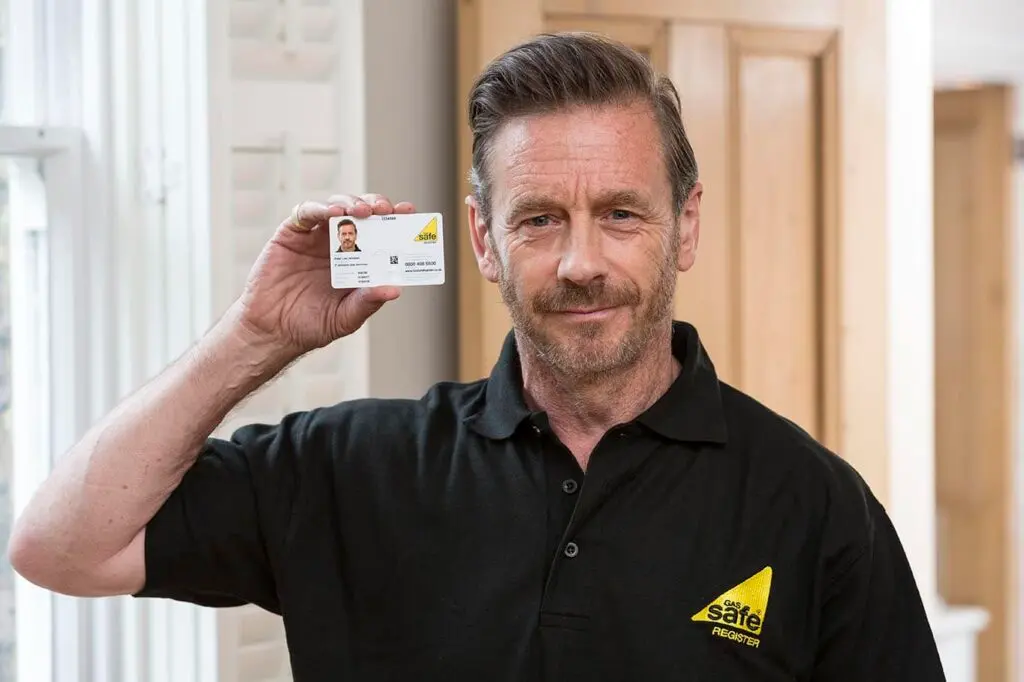
Book your boiler replacement with Checkatrade
If you’re looking for a qualified and reliable boiler fitter to handle your boiler replacement, you’re in the right place.
At Checkatrade, all our tradespeople have to pass up to 12 checks to get listed in our directory.
Plus, we check all the reviews they receive, to make sure they’re written by real people.
In fact, we’re so confident in the quality of the trades on Checkatrade that if you book through us, we guarantee their work up to £1,000 (guaranteed for 12 months – eligibility and T&Cs apply).
Enter your postcode into the search box below to get started.
See the tradespeople we've checked and recommend for your job
Contact or pay a trade through Checkatrade and you’re covered by our 12-month guarantee of up to £1,000*

FAQs
Which is cheaper to run, an electric or gas boiler?
A gas boiler is cheaper to run than an electric boiler. Even though electric boilers are more efficient, the price of electricity is higher than the price of gas.
Can I switch from a gas boiler to an electric boiler?
Yes, switching from a gas boiler to an electric boiler is relatively straightforward. You’ll need a Gas Safe registered engineer to remove your old gas boiler, flue and condensate pipe – and to disconnect the gas line.
Then, your new electric boiler can be installed by an electrical or heating engineer.
How long does it take to install a new boiler?
Installing a new boiler can take anywhere from 4 hours to 6 days. Replacing your boiler like-for-like will take less time than switching it to a new type or moving it to a new location.
Are electric boilers more eco-friendly than gas boilers?
Yes, electric boilers are more eco-friendly than gas boilers. This is because they don’t burn fossil fuels or release emissions.
See the tradespeople we've checked and recommend for your job
More Expert Advice Articles
More Electric Boiler Installation Articles
See the tradespeople we've checked and recommend for your job

